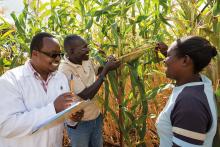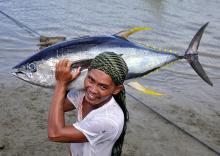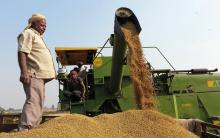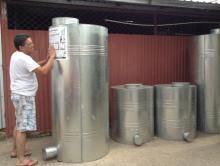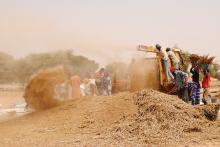Land Library
Bem-vindo à Biblioteca do Land Portal. Explore nossa vasta coleção de recursos de acesso aberto (mais de 74.000), incluindo relatórios, artigos de revistas científicas, trabalhos de pesquisa, publicações revisadas por pares, documentos jurídicos, vídeos e muito mais.
/ library resources
Showing items 1 through 9 of 61.Cities and Urban Areas play a crucial role as engines of development as well as centers of connectivity, creativity, innovation, and as service hubs for the surrounding areas. Kenya has experienced unprecedented urban growth. At independence the urban population was about 8%.
In a long-term project in Kenya, the Swiss-based Research Institute of Organic Agriculture has examined the potential of organic and conventional agriculture regarding soil fertility, the occurrence of pests and diseases, and profitability.
A project run by the WWF has set itself the goal of transforming Philippine tuna fisheries towards more sustainable practices, securing the livelihoods of the small-scale fishers in the long term. European buyers who have committed to source from them provide the necessary incentives.
An ingenious combination of plant breeding, contract farming and processing has enabled smallholder tomato growers to tap new markets in Tanzania’s Arusha Region. Two improved tomato cultivars released from AVRDC lines are at the centre of this success story.
The Land Act, 2012
The Land Registration Act, 2012
The National Land Commission Act, 2012
The Environment & Land Court Act, 2011
The Urban Areas & Cities Act, 2011
Illegal and irregular allocations of public land were a common feature of the Moi regime and perhaps it’s most pervasive corrupt practice.
The Sustainable Development Goals (SDGs) will amount to little unless backed by reliable indicators. Only with good metrics can the agenda be implemented and progress measured.
More than 30 years ago, the Swiss Agency for Development and Cooperation (SDC) started a post-harvest programme in Central America named “Postcosecha”. The significant impact that was still evident long after the project end also continues to exist after the cessation of external support.
According to the International Labour Organisation (ILO), a large share of child labour takes place in family-based agriculture. However, most agricultural projects do not address child labour, even though they have the potential to contribute to its prevention and reduction.


